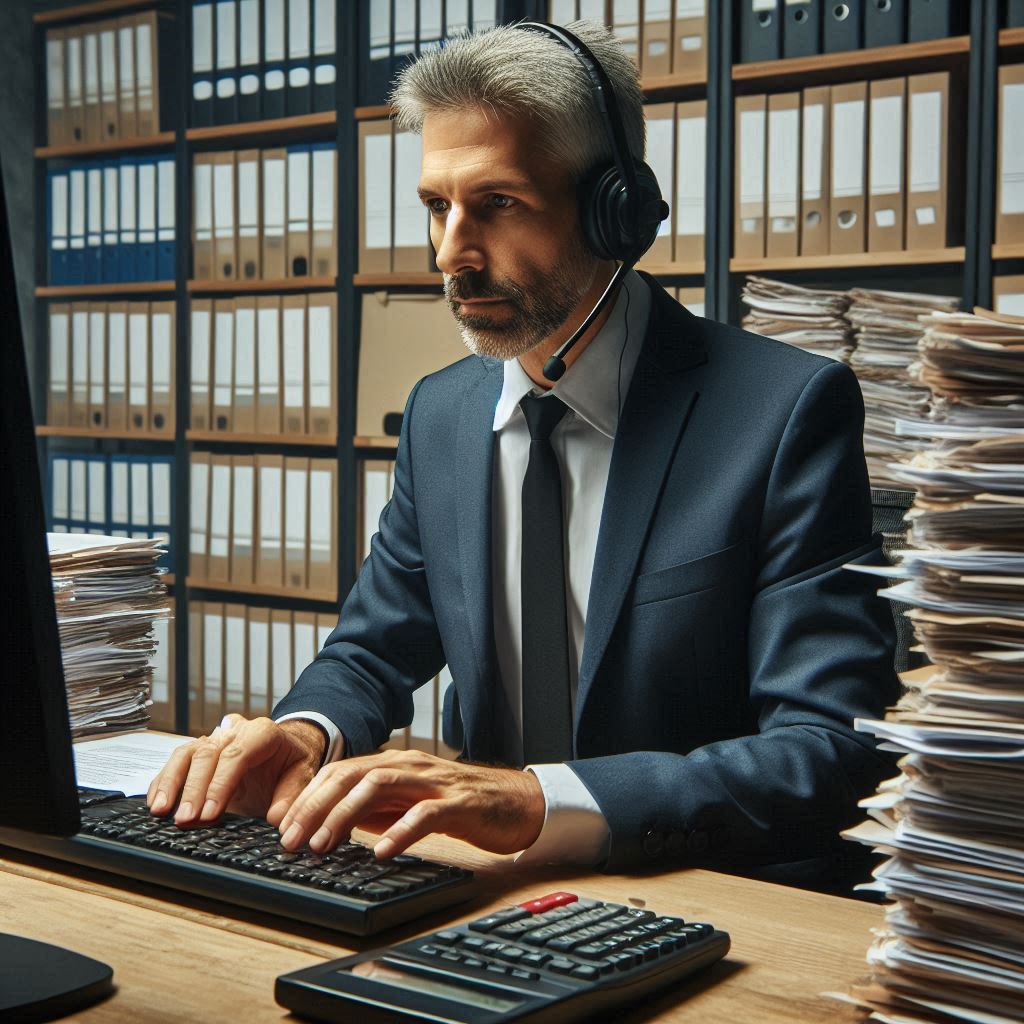Introduction
In today’s complex legal landscape, community engagement is essential for civil rights lawyers.
It goes beyond traditional legal practice, fostering relationships and trust with the communities they serve.
Community engagement allows civil rights lawyers to have a deeper understanding of the needs and challenges faced by their clients.
By actively listening and being present in the community, lawyers can tailor their legal strategies to better address these issues.
Furthermore, community engagement enhances lawyers’ ability to advocate for social justice.
By building strong connections with grassroots organizations and community leaders, lawyers can collaborate on initiatives that promote equality and fairness.
Overall, community engagement is a powerful tool that enables civil rights lawyers to not only serve their clients more effectively but also drive meaningful change in society.
Definition of Community Engagement for Civil Rights Lawyers
Community engagement for civil rights lawyers refers to the active involvement of legal professionals in promoting and protecting the rights of marginalized and vulnerable communities.
It goes beyond traditional legal representation to include partnering with community organizations, advocating for policy change, and empowering individuals to assert their rights.
Explanation of Community Engagement in the Context of Civil Rights Law
Community engagement in civil rights law is essential because it allows lawyers to understand the unique challenges faced by communities they serve.
It helps to build trust and collaboration between legal practitioners and community members, leading to more effective advocacy and social justice outcomes.
Examples of Ways Civil Rights Lawyers Can Engage with the Communities They Serve
- Providing Know Your Rights Workshops: Civil rights lawyers can educate community members on their legal rights and how to assert them in various situations.
- Collaborating with Community Organizations: Lawyers can partner with local advocacy groups to address systemic issues and mobilize for change.
- Offering Pro Bono Legal Services: Providing free legal assistance to individuals who cannot afford representation is a crucial way to support marginalized communities.
- Supporting Grassroots Initiatives: Civil rights lawyers can amplify the voices of community activists and leaders by offering legal expertise and strategic guidance.
- Participating in Community Events: Attending town hall meetings, protests, and other community gatherings can help lawyers stay connected to the needs and concerns of the people they represent.
Read: Civil Rights Advocacy: Balancing Passion and Work
Benefits of Community Engagement for Civil Rights Lawyers
Community engagement is a crucial aspect of a civil rights lawyer’s practice.
By actively participating in community events, outreach programs, and advocacy efforts, lawyers can make a significant impact on the communities they serve.
Here are some key benefits of community engagement for civil rights lawyers:
Build Trust and Credibility
One of the primary benefits of community engagement for civil rights lawyers is the ability to build trust and credibility with the communities they serve.
By participating in local events, hosting Know Your Rights workshops, and actively listening to community members, lawyers can demonstrate their commitment to the cause and show that they are invested in the well-being of the community.
Gain Valuable Insights and Perspectives
Engaging with the community provides civil rights lawyers with valuable insights and perspectives that can inform their legal strategies.
By listening to the concerns and experiences of community members, lawyers can gain a deeper understanding of the challenges they face and tailor their advocacy efforts to address these issues effectively.
Build Strong Relationships
Community engagement allows civil rights lawyers to build strong relationships with community leaders, activists, and organizations.
Transform Your Career Today
Unlock a personalized career strategy that drives real results. Get tailored advice and a roadmap designed just for you.
Start NowBy collaborating with local stakeholders, lawyers can amplify their impact and leverage collective resources to advance social justice causes.
These relationships can also lead to referrals and partnerships that benefit both the lawyers and the community.
Increase Visibility and Influence
By actively engaging with the community, civil rights lawyers can increase their visibility and influence in the legal field.
Building a strong presence in the community can enhance a lawyer’s reputation, attract potential clients, and open up new opportunities for advocacy and activism.
This increased visibility can also help lawyers attract media attention and raise awareness about important civil rights issues.
Promote Social Change
Community engagement is a powerful tool for promoting social change and advancing civil rights causes.
By working closely with community members, civil rights lawyers can identify systemic injustices, advocate for policy reforms, and mobilize grassroots support for important initiatives.
Through community engagement, lawyers can be influential agents of change and drive meaningful progress in the fight for equality and justice.
In fact, community engagement is essential for civil rights lawyers to effectively advocate for marginalized communities and drive positive social change.
By building trust, gaining valuable insights, building relationships, increasing visibility, and promoting social change, lawyers can make a significant impact on the communities they serve and contribute to a more just and equitable society.
Read: Top Firms Specializing in Environmental Law
Strategies for effective community engagement
Engaging with the community is essential for civil rights lawyers who want to make a real impact. Here are some strategies for effective community engagement:
Establish Trust
- Build relationships with community leaders and organizations.
- Show your commitment to the cause through consistency and reliability.
- Be transparent about your goals and motivations.
Actively Listen
- Listen to the concerns and needs of community members without judgment.
- Ask open-ended questions to encourage dialogue and understanding.
- Reflect back what you’ve heard to ensure clarity and show empathy.
Show Empathy
- Put yourself in the shoes of community members to understand their perspectives.
- Express genuine care and concern for their well-being.
- Acknowledge the emotions and experiences of those you are engaging with.
Develop Cultural Competence
- Educate yourself about the cultural background and history of the community.
- Respect and embrace diversity in all its forms.
- Avoid making assumptions based on stereotypes or biases.
By following these tips and tools, civil rights lawyers can build meaningful relationships with the communities they serve.
Active listening, empathy, and cultural competence are critical in fostering trust and collaboration.
When lawyers engage with the community in a genuine and respectful manner, they can better understand the needs and concerns of those they are advocating for.
This, in turn, leads to more effective and impactful legal representation that truly serves the interests of the community.
Read: How Environmental Lawyers Help Protect Wildlife

Challenges and Misconceptions Surrounding Community Engagement
Community engagement is essential for civil rights lawyers to effectively advocate for their clients and create lasting social change.
However, there are challenges and misconceptions that can hinder this process.
Addressing Common Barriers
- Lack of trust: Communities may be wary of outsiders, especially legal professionals.
- Communication barriers: Language or cultural differences can hinder effective engagement.
- Resource constraints: Civil rights lawyers may lack the time or funds to engage with the community.
- Power dynamics: Unequal power relationships can make it difficult to engage authentically with the community.
- Historical trauma: Past injustices or experiences with the legal system can create distrust.
Overcoming Misconceptions
- Misconception: Community engagement is a one-way street where lawyers dictate solutions.
- Solution: Engage in active listening and prioritize the community’s input and needs.
- Misconception: Community members are not knowledgeable about legal issues.
- Solution: Provide education and empower community members to be part of the solution.
- Misconception: Community engagement is time-consuming and not worth the effort.
- Solution: Invest in long-term relationships and see the value in collaboration with the community.
By recognizing and addressing these challenges and misconceptions, civil rights lawyers can enhance their community engagement efforts and amplify their impact on social justice issues.
Transform Your Career Today
Unlock a personalized career strategy that drives real results. Get tailored advice and a roadmap designed just for you.
Start NowRead: Influence of Environmental Lawyers on Legislation
Case studies of successful community engagement initiatives
Civil rights lawyers who have effectively engaged with the community to advance social justice
Civil rights lawyers play a crucial role in advancing social justice. Many lawyers effectively engage with communities to create meaningful change.
For instance, Bryan Stevenson, founder of the Equal Justice Initiative, uses community engagement to fight racial injustice.
He organizes community discussions and educates people about mass incarceration.
His work has significantly impacted marginalized communities, raising awareness about systemic inequalities.
Another example is the work of Sherrilyn Ifill, former president of the NAACP Legal Defense and Educational Fund.
She led initiatives focusing on voting rights and education equality.
By collaborating with community leaders, she empowered citizens to understand and exercise their voting rights.
Her efforts increased voter turnout and improved access to quality education in underserved areas.
In Chicago, civil rights lawyer and activist Michelle Alexander engaged with local communities to address housing discrimination.
She worked alongside residents to challenge discriminatory practices and policies.
Her initiative led to improved housing conditions and greater awareness of tenants’ rights.
These efforts also inspired other lawyers to prioritize community involvement in their legal strategies.
Impact of these initiatives on the communities they serve and on the legal profession as a whole
The impact of these initiatives extends beyond individual communities. They foster trust between lawyers and the people they serve.
By involving community members, civil rights lawyers ensure that legal strategies address real-world issues.
This collaboration also strengthens the legal profession by emphasizing the importance of social justice.
Lawyers become more attuned to community needs and are better equipped to advocate for change.
Community engagement initiatives by civil rights lawyers have led to significant progress in social justice.
These efforts improve conditions for marginalized communities and inspire the legal profession to embrace activism.
By highlighting these successes, more lawyers can be encouraged to engage with communities and drive meaningful change.
Transform Your Career Today
Unlock a personalized career strategy that drives real results. Get tailored advice and a roadmap designed just for you.
Start NowThrough collaboration and advocacy, civil rights lawyers continue to advance justice and equality for all.
Conclusion
Community engagement is crucial for civil rights lawyers as it allows them to truly understand the needs and concerns of the communities they serve.
By actively engaging with the community, lawyers can build trust, gather valuable insights, and work towards meaningful change.
It is important for civil rights lawyers to prioritize community engagement as a key component of their legal practice.
Through community engagement, lawyers can amplify the voices of marginalized individuals and advocate for justice in a more impactful way.
Ultimately, community engagement not only benefits the communities served but also enhances the effectiveness and relevance of the legal advocacy efforts.
Therefore, civil rights lawyers should actively seek opportunities to engage with and empower the communities they represent.
By fostering strong relationships and promoting collaboration, lawyers can create positive change and uphold the principles of justice and equality.
[E-Books for Sale]
The Big Book of 500 High-Paying Jobs in America: Unlock Your Earning Potential
$19.99 • 500 High-Paying Jobs • 330 pages
Explore 500 high-paying jobs in America and learn how to boost your career, earn more, and achieve success!
See All 500 High-Paying Jobs of this E-Book
1001 Professions Without a Degree: High-Paying American Jobs You Can Start Now
$19.99 • 1001 Professions Without a Degree • 174 pages
Discover 1001 high-paying jobs without a degree! Unlock career tips, skills, and success strategies for just $19.99!




